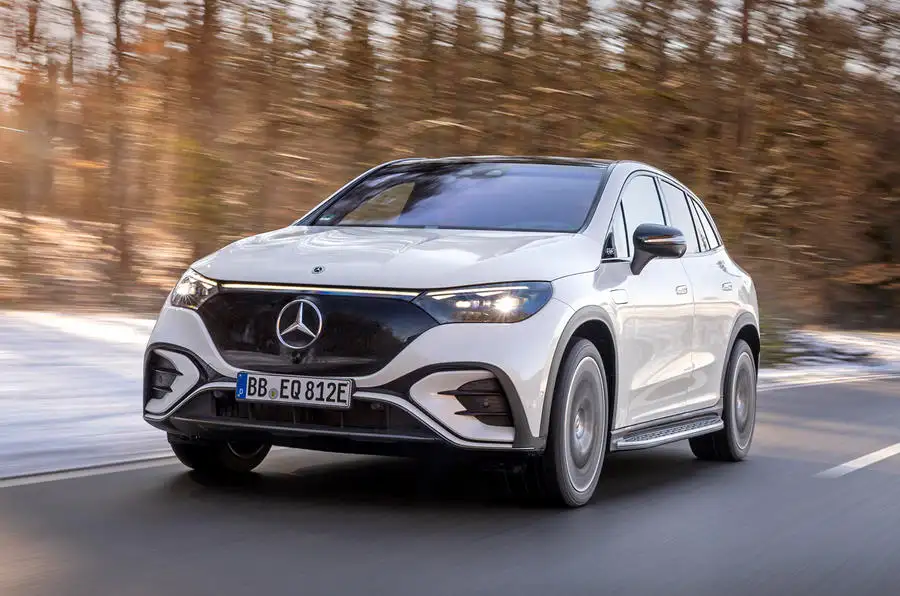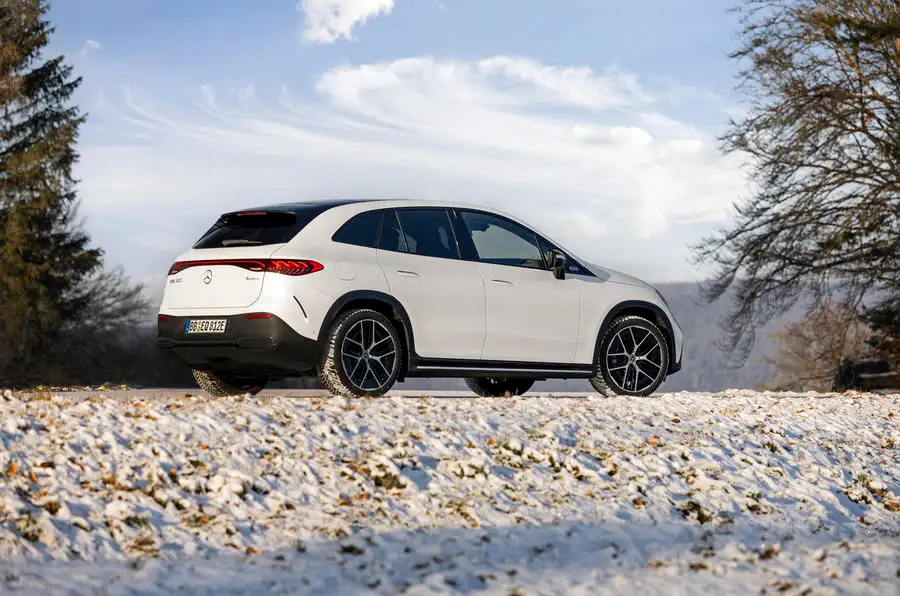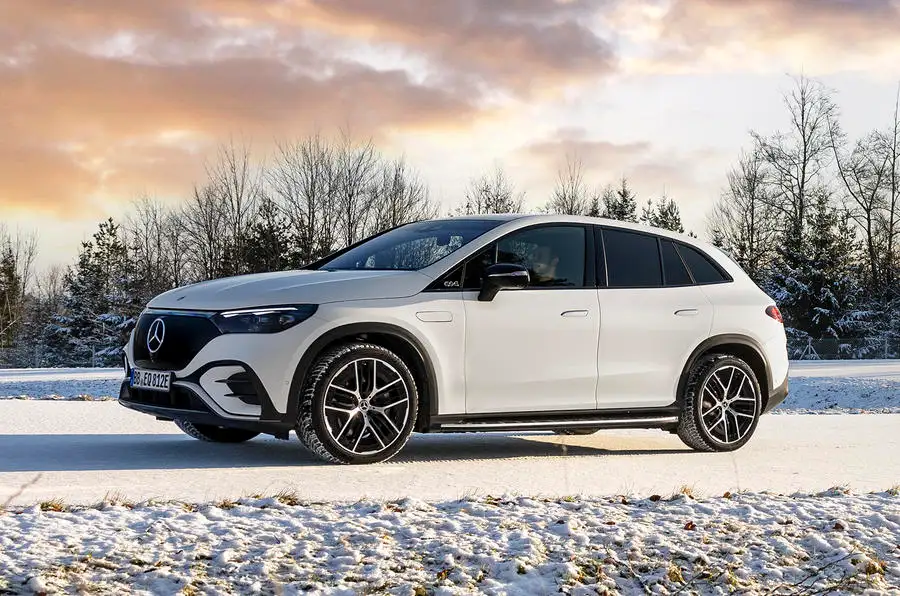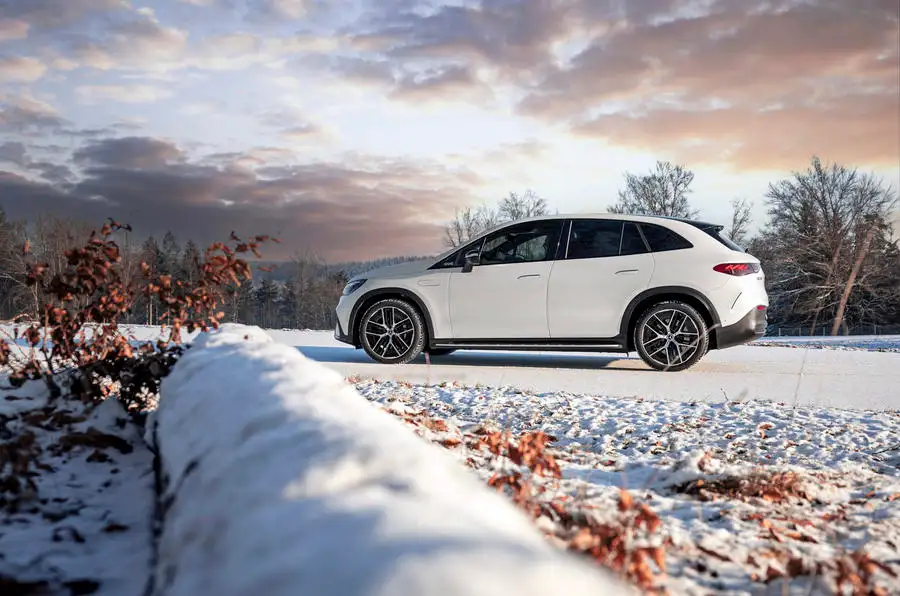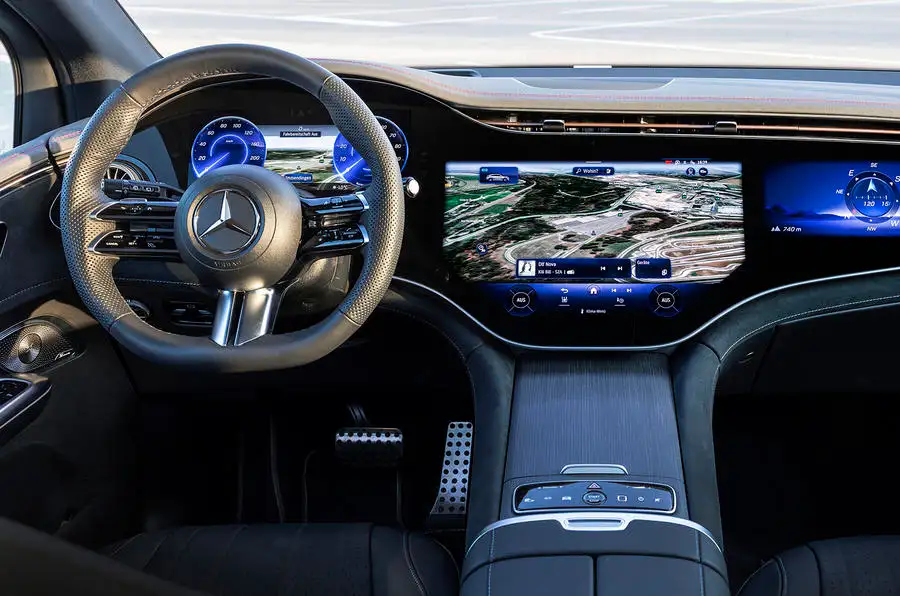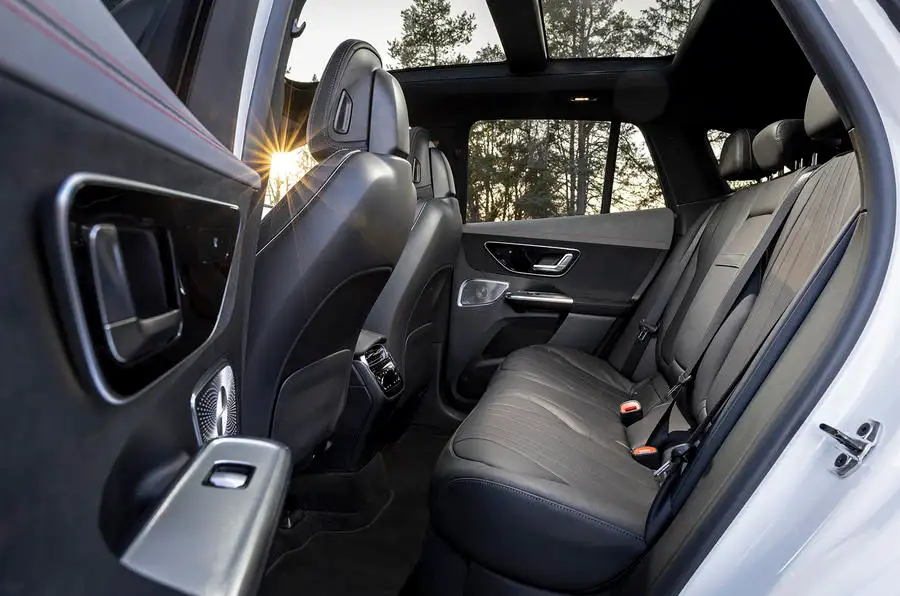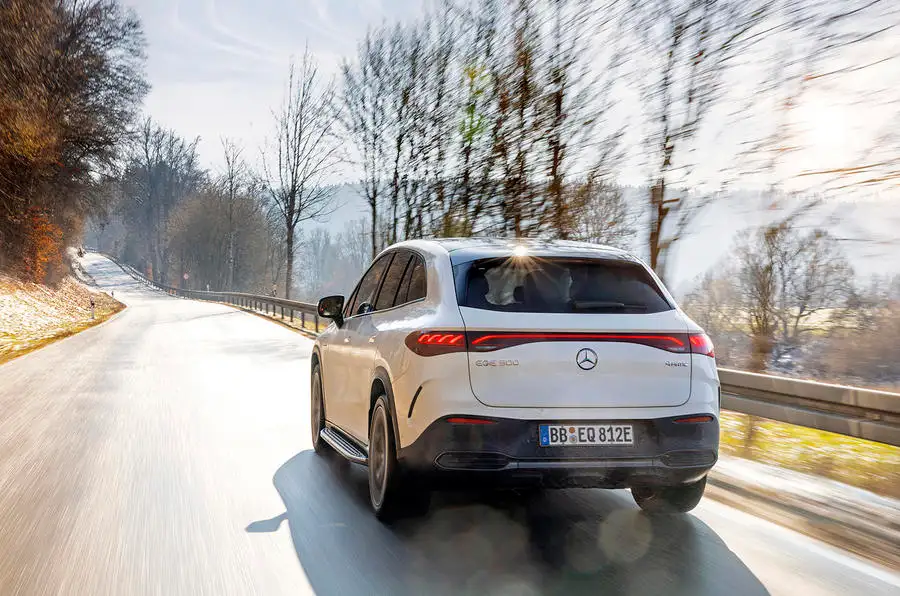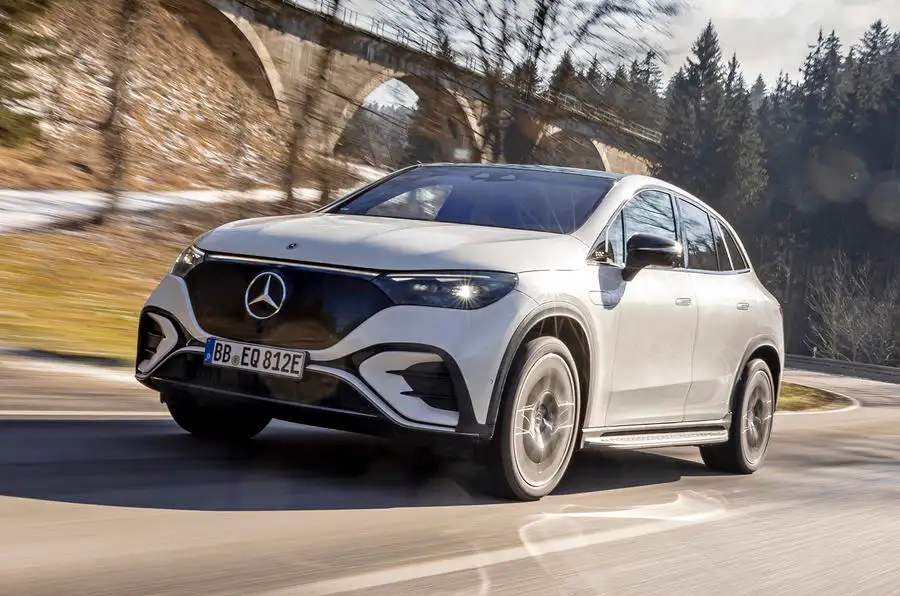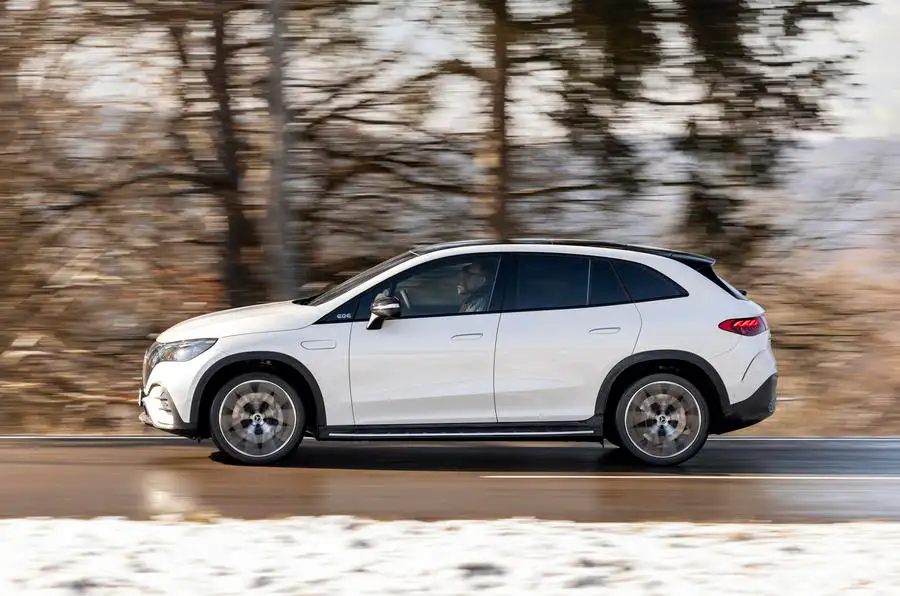Mercedes-Benz’s ninth electric model and all-new BMW iX rival arrives later this year.
Mercedes-Benz’s entry into the electric car ranks has so far been divided into two distinct camps.
The trio of models based on its dedicated electric vehicle architecture – the so-called EVA structure, including the upmarket Mercedes EQS sedan, Mercedes EQE sedan and Mercedes EQS SUV, have been roundly applauded for their outstanding combination of performance, refinement, luxury and overall efficiency.
On the other hand, the more affordable electric models that rely on the same platform as their internal combustion engine siblings, the EQA crossover, EQB SUV, EQC SUV, have attracted less admiration. Solid in many areas, but not class-leading, being the consensus.
The upcoming EQE SUV, on sale in Australia later this year, is very much among the former. In fact, the EQE SUV might be Mercedes’ most convincing electric-powered model yet.
That’s the conclusion after riding in two pre-production prototypes of the new five-seat model on roads both inside and outside Mercedes’ Immendingen test facility in Germany.
With Mercedes engineers at the wheel along a series of challenging roads used to hone components and test chassis settings during the development process, the EQE SUV comes across a very polished and complete rival to the likes of the recently upgraded Audi Q8 e-tron, BMW iX and Jaguar I-Pace.
Like the EQS sedan, EQE sedan and EQS SUV, it’s based on the EVA platform. The skateboard-style structure sites the EQE SUV’s electric motors low down at either the rear or, as in the EQE500 4Matic SUV and EQE53 4Matic+ SUV models in focus here, at the front and rear, with the 90.6kWh battery.
There’s certainly no mistaking the EQE SUV as one of Mercedes’ latest electric-powered models. Distinguished at the front by a black panel grille, which is set to come with the German car maker’s three-pointed star logo pattern as optional, it also gets a similar smooth-surfaced styling treatment, 10-window glasshouse and rounded silhouette as the larger and more expensive EQS SUV.
There are some subtle differences between the two, including unique headlamp graphics, a less flamboyant clamshell-style bonnet and a more acute, sloping roof. The tailgate is less upright than on the EQS SUV, too.
At 4863mm in length, 1940mm in width and 1686mm in height, the EQE SUV is 262mm shorter, 19mm narrower and 32mm lower than the EQS SUV. It also rides on a wheelbase that is 180mm shorter than that of its larger sibling.
The interior of the EQE SUV is much like that of the EQE sedan, with a choice of two dashboard layouts – a standard affair with separate instrument and portrait-style infotainment displays or Mercedes-Benz’s Hyperscreen, which supports three individual displays in a single facia, as a high cost option.
It’s suitably opulent inside, with high-quality materials throughout, and it’s also very roomy, with excellent front and rear space and 520 litres of boot space, but there’s no storage underneath the bonnet.
Mercedes-Benz plans three standard and two AMG EQE SUV models from the start of sales. Kicking off the line-up is the single-motor, rear-wheel-drive EQE350+ SUV with 215kW and 565Nm. It will be joined by the more powerful dual-motor, four-wheel-drive EQE350 SUV 4Matic with 215kW and 765Nm and the EQE500 SUV 4Matic with 300kW and 857Nm.
The AMG models both run a dual-motor, all-wheel-drive drivetrain, with the EQE43 SUV 4Matic offering 350kW and 845Nm and the range-topping EQE53 SUV 4Matic+ delivering up to 504kW and 1000Nm in combination with an optional AMG Dynamic Plus Package.
On separate runs in and around Mercedes’ test facility, the EQE500 4Matic SUV and EQE53 4Matic+ SUV displayed differing characters, despite both featuring air suspension and rear-wheel steering as standard.
The EQE500 4Matic SUV delivers strong yet hushed performance in combination with an outstandingly well-controlled ride and low levels of road noise and wind buffeting. It is always blissfully quiet.
The more powerful EQE53 ramps up acceleration and befits its performance car billing. Its dual electric motors, boasting unique windings among other detailed changes, allow the EQE53 4Matic+ to rev higher than the EQE500 4Matic, providing it with an added 205kW and 142Nm over its standard dual motor sibling.
Altogether, there are four driving modes: Comfort, Sport, Sport Plus and Individual. Comfort is programmed to deliver 80 per cent of the overall power, with Sport delivering 90 per cent and Sport Plus the full 100 per cent.
Mercedes-Benz claims 0-100km/h in 3.5sec in Sport Plus. However, the huge flood of torque unleashed with even fleeting prods of the throttle as well as the formidable traction provided by the fully variable 4Matic four-wheel drive system makes it feel quicker still.
With the self-levelling air suspension and variable damping properties, there’s exceptional control to the new AMG model’s ride. The suppression of pitch and dive is very impressive, as is the isolation of road shock and noise.
The best part, however, is the outright agility. With a low centre of gravity and an electronically controlled anti-roll system working to counter lean, the EQE53 4Matic+ SUV corners with great purpose.
The uniquely tuned rear wheel steering sees it turn in with great enthusiasm on the entry, though any impressions of the sort of feel and feedback it delivers will have to wait until later this year when we get to drive it ourselves.
Such is its ability to carry speed through corners, we were left wondering why AMG has settled on such flat front seats. They need greater side support and firmer cushioning.
It will be a while before we can independently verify Mercedes-Benz’s range claims, though it says the EQE SUV, known internally under the codename X296, will be quite competitive on this front, with the single-motor, rear-wheel drive EQE350+ delivering between 486km and 595km on the WLTP cycle.
The dual-motor, all-wheel drive EQE500 4Matic SUV and EQ E53 4Matic+ SUV are predictably not as economical, boasting respective WLTP ranges of between 465km and 55km and 375km and 470km.
Production of the EQE SUV for the Australian market will take place at Mercedes’ Tuscaloosa factory in the US – the same site that presently produces the GLE, GLS and EQS SUVs.
Plans also exist for the new electric model to be produced at the German car maker’s joint venture plant operated in co-operation with Beijing Automotive Industry Corporation in Beijing, China, although only for the domestic Chinese market.




